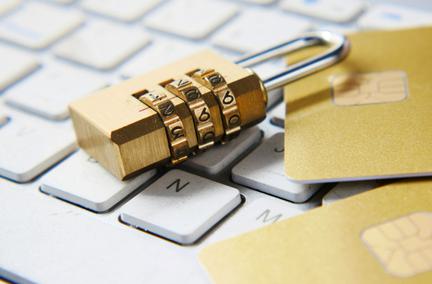Work Securely from Anywhere: Your Guide to a Safe Remote Office
Jul 22, 2025 | Home Technology, Helpful Tips, Cyber Security

Remote work has changed everything, allowing many team members and sole proprietors to set up shop wherever there is an internet connection. While this flexibility is convenient and cuts down on commuting, it also brings with it some new challenges, especially for cybersecurity.
Picture this: You’re comfortably working from your couch, enjoying your favorite beverage. Life is good, right? Normally, that’s true. But that cozy scene can quickly become a cybersecurity nightmare when your screen suddenly flashes and an ominous message appears from a hacker demanding a boatload of money before they will release your computer back to you. Ransomeware is just one type of cyber attack that can ruin your otherwise peaceful and productive day.
Think it won’t happen to you? That’s what everyone thinks, until it does.
Remote work environments open the door to all sorts of cyber threats, from sneaky phishing scams to nasty malware attacks. Cybercriminals constantly target remote workers. But don’t worry! You can keep sensitive information safe and sound with a few smart moves.
Essential Security Practices for Remote Workers
How do you protect your data? Let’s dive into some key security measures to protect your digital life.
Strong Passwords and MFA
We get it: creating and remembering strong passwords isn’t the most thrilling task. It’s not our idea of a good time. But a unique password for every account is your first defense against cyberattacks. Avoid reusing passwords, and make them long, complex, and memorable. Better yet, use a password manager to keep track of them all.
And for an extra layer of security, enable multi-factor authentication (MFA) wherever possible. This is like having a second lock on your digital door, making it much harder for hackers to gain unauthorized access, even if they somehow get your password.
Encryption and VPNs
Think of encryption as your data’s personal bodyguard. It scrambles your sensitive data into an unreadable format, making it virtually impossible for cybercriminals to decipher. Encryption is crucial whether you’re sending emails or storing documents in the cloud.
For even more protection, especially when using public Wi-Fi, always connect to a virtual private network (VPN). A VPN creates a secure, encrypted tunnel for your internet traffic, shielding your online activity from prying eyes and data breaches. This is a must-have for remote employees accessing corporate networks.
Software Updates and Antivirus Software
You know those super annoying software update notifications on your laptop, tablet, and phone? Don’t ignore them! Software updates often contain important patches for known vulnerabilities that cybercriminals love to exploit. Staying on top of updates is a simple but powerful way to fend off cyber threats like ransomware.
Along with your updates, ensure you have robust antivirus software installed and running on all your devices. This acts as your real-time detective, scanning for and neutralizing threats like malware and other scams. Antivirus software also pushes out period updates to fend off ever-smarter hackers trying to work around existing barriers. Stay one step ahead by downloading the updates as they come out.
Advanced Protections for the Remote Workforce
While the above are crucial, a comprehensive approach to network security involves more:
- Firewall: Ensure your router has a strong firewall enabled to control incoming and outgoing network traffic, preventing unauthorized access.
- Zero Trust: While often implemented by IT departments for corporate networks, the principle of “never trust, always verify” can be applied to your own habits, like scrutinizing phishing emails. You’ve heard it before, but we’ll say it again: if it seems too good to be true, it probably is.
- BYOD (Bring Your Own Device) Policies: Most companies want you to use their devices only, but if your company has a BYOD policy, understand their security policies and recommendations for using your personal devices for work. Your IT team or security teams can provide guidance.
- Social Engineering Awareness: Be wary of social engineering tactics where cybercriminals manipulate you into revealing sensitive information. If something feels off, trust your gut.
- Access Control: Understand your company’s access control measures for remote access to company data.
Work Confidently
By adopting these security solutions and partnering with a reliable provider like Gateway Fiber, you can confidently navigate the wild world of remote work. Go ahead, cozy up on that couch, and get ready to conquer the digital frontier, one secure connection at a time!
Ready to experience the speed and security of fiber internet for your work-from-home setup? See if Gateway Fiber internet is available in your area.
- remote work
- cybersecurity
- vpn
- cyberthreat
- WFH
- work from home







